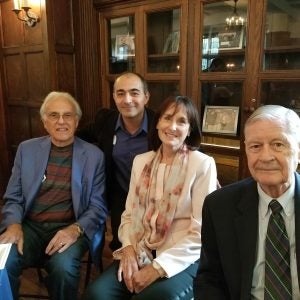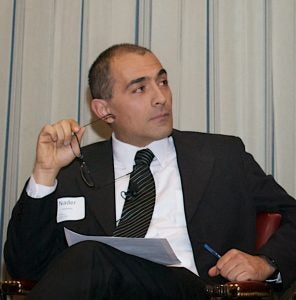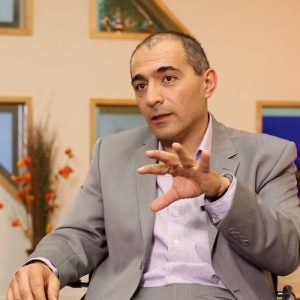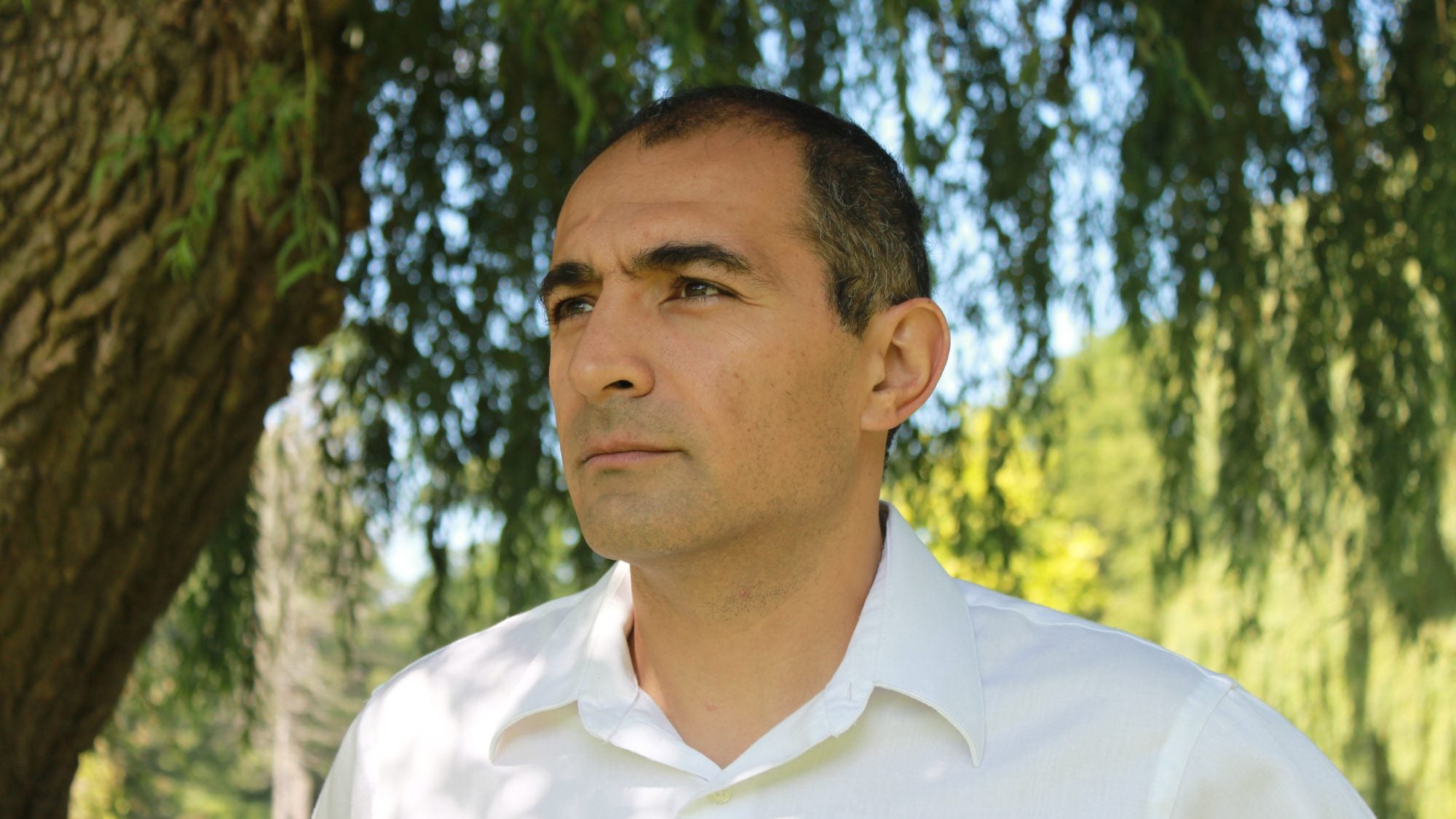This summer, Nader Hashemi joined the SFS as the new director of the Alwaleed Center for Muslim-Christian Understanding (ACMCU). Hashemi comes to the SFS from the University of Denver’s Josef Korbel School of International Studies, where he served as the founding director of the Center for Middle East Studies. Hashemi has plans to expand and strengthen the Center through community engagement and leadership built upon his past professional experiences. He has taught at the University of Toronto, Northwestern, UCLA and the University of Denver and looks forward to getting to know his students at Georgetown.
The ACMCU is a place for scholars, religious leaders and students to come together and increase understanding of Muslim-Christian relations through engagement in dialogue about religion and politics in international affairs. The ACMCU offers a multitude of related courses and a minor in Muslim-Christian understanding, as well as outreach programs such as free professional development workshops and extensive research opportunities.
The ACMCU was led for many years by John Esposito, who founded the Center in 1993. Esposito stepped back into leadership as director after the retirement of Tamara Sonn in 2021, and has been a key source of strength for the Center’s extraordinary success and achievements for the last thirty years. Hashemi hopes to build on and extend Esposito’s work, and continue the Center’s mission of Christian and Muslim understanding.

“Our center was founded and then expanded its mandate after two key moments in international relations: the end of the Cold War and 9/11 (and the subsequent War on Terror). After these events, many believed that the Islamic and Western worlds were going to be locked in mortal combat. Our world has changed since then. Today, China, Russia and the war in Ukraine dominate U.S. foreign policy thinking and debate,” Hashemi says.
“Appreciating recent transformation in global affairs and adjusting our programming and course offerings to reflect these structural changes in international relations, will guide my directorship of the ACMCU.”
Hashemi added: “I’m especially interested in new global challenges related to climate change, rising inequality and authoritarianism. What do Islamic scholars and ethicists have to say about this new trifecta of overlapping and mutually reinforcing problems that is shaping our contemporary world, the Arab-Islamic world in particular? How are Christian ethicists conceptualizing and confronting these challenges? These are generational, interdisciplinary questions confronting our shared humanity and planet. Developing these new research vistas while continuing existing programs will be a priority for me as the new director of ACMCU.”
Past Accomplishments, New Role
Hashemi has an impressive wealth of experience and knowledge that will greatly benefit the University. He obtained his doctorate from the department of political science at the University of Toronto, and previously was an Andrew W. Mellon postdoctoral fellow at Northwestern University and a visiting assistant professor at the UCLA Global Institute.
Hashemi’s intellectual and research interests lie at the intersection of comparative politics and political theory. In particular, Hashemi focuses on debates on the global rise of authoritarianism, religion and democracy, secularism and its discontents, Middle East and Islamic politics, democratic and human rights struggles in non-Western societies and Islam-West relations.
Hashemi is the author of multiple books, most recently as co-editor of a four-volume study entitled “Islam and Human Rights: Critical Concepts in Islamic Studies.” He is frequently interviewed by various news outlets, and his writings are featured nationwide. He is also a non-resident fellow at Democracy for the Arab World Now, an organization established by the late Jamal Khashoggi.
Translating Directorial Experience to the Hilltop
Hashemi was the founding director of the Center for Middle East Studies at the University of Denver’s Josef Korbel School of International Studies, leading the center for the past ten years.

“I learned how to manage a research center in a school of international relations, which requires considerable diplomatic skill. I above all learnt how to work collaboratively on new research vistas. I hope to apply these skills to my new directorship,” he says.
Hashemi’s activism and work at the University of Denver inspires his new position at Georgetown. “At the University of Denver, I was very involved in anti-racism work. We addressed the problem of rising Islamophobia and antisemitism. I am proud to say that I was a leader on campus in fighting against bigotry and discrimination, including its weaponization in the service of toxic political ideologies,” he says. “In Denver, we also focused our programming on the themes of human rights, democracy, U.S. foreign policy and supporting political dissidents. I hope to continue this work as director of the ACMCU.”
Expanding the Future of the ACMCU
Hashemi already has plans to develop the Center and promote engagement with the Georgetown community.
“I first plan to schedule some open house sessions where visitors can grab a coffee and meet the new director and center staff. I would like to hear what other faculty, staff and students think about the Center and how we can better advance our mandate,” he shares.
Inspired by philosopher John Stuart Mill’s argument that freedom of speech is necessary and crucial to advancing understanding of the world, Hashemi hopes to promote lively debate on campus with the ACMCU. “We don’t debate anymore. My early education was deeply shaped by lively, civil, and contentious debate on important political and moral questions,” he says.
 A Community of Talent and Excellence
A Community of Talent and Excellence
“I’m awestruck by the intellectual talent that exists at Georgetown. I’m looking forward to working collaboratively with this rich community of scholars and including them into our center’s programming agenda,” Hashemi says. “Specifically, Georgetown has a pool of talent that work on the politics and societies of the Middle East and the larger Arab-Islamic world. I look forward to engaging specifically with these colleagues and those who work at the intersection of religion, politics and ethics.”
When asked why he chose Georgetown, Hashemi gave a simple and clear answer: “For the same reasons that Anthony Fauci did. It is one of the best places in the world to pursue research, teaching and academic excellence with an eye toward advancing the public good. Georgetown takes academic freedom seriously and religion seriously. I do as well.”
